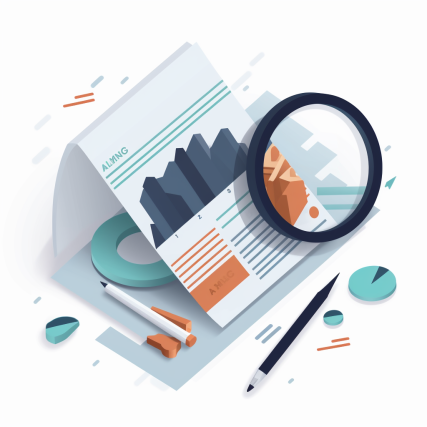
As a creditor, understanding the creditworthiness of your customers is crucial to mitigating risks and making informed decisions. In this blog post, we’ll delve into the world of credit reports and explore how they can empower creditors like you to optimize credit management practices. By harnessing the power of credit reports, you can minimize defaults, maximize profitability, and build stronger relationships with reliable customers. Let’s unlock the potential of credit reports and revolutionize your credit management approach.
-
The Importance of Credit Reports for Creditors
Credit reports serve as a valuable tool for assessing potential customers’ creditworthiness and managing existing credit relationships. Understanding credit reports’ significance is essential to making informed decisions and minimizing potential risks. Key benefits include:
-
Assessing creditworthiness: Credit reports provide insights into a borrower’s payment history, outstanding debts, and overall financial health, allowing you to gauge their ability to meet repayment obligations.
-
Minimizing default risks: By analyzing credit reports, you can identify warning signs, such as a history of late payments or high debt-to-income ratios, enabling you to make informed decisions about extending credit.
-
Setting appropriate credit limits and terms: Credit reports help determine appropriate credit limits, interest rates, and payment terms tailored to each customer’s creditworthiness, optimizing profitability and reducing non-payment risk.
-
Understanding Credit Reports and Scores
Credit reports are comprehensive records of an individual’s or business’ credit history and financial behavior. They include information like:
-
Personal identification details
-
Payment history on credit accounts
-
Outstanding debts and credit utilization
-
Public records (bankruptcies, liens, etc.)
-
Inquiries made by lenders
Credit scores, typically ranging from 300 to 850, summarize a borrower’s creditworthiness based on their credit report. Higher scores indicate lower credit risks, while lower scores suggest higher default risks.
-
How to Access Credit Reports
To access credit reports, creditors can partner with credit reporting agencies or credit bureaus. These agencies collect and compile credit information from various sources, creating comprehensive credit reports for individuals and businesses. Some popular credit reporting agencies include Equifax, Experian, and TransUnion. You can subscribe to their services or use their online platforms to request credit reports for evaluation.
-
Utilizing Credit Reports in Credit Decision-Making
When evaluating creditworthiness, consider the following factors from credit reports:
-
Payment history: Assess the borrower’s timely, late, or default track record.
-
Debt levels: Evaluate the borrower’s outstanding debts and credit utilization to determine their capacity for additional credit.
-
Public records: Check for bankruptcies, liens, or judgments, which may indicate higher risks.
-
Credit inquiries: Assess the frequency and recent inquiries made by the borrower, as numerous inquiries can suggest financial instability.
-
Ongoing credit monitoring
Credit reports should not be one-time assessments. Establish a credit monitoring system to stay informed about customer financial changes. Regularly review credit reports for existing customers and set up alerts for significant changes, such as missed payments or increased debt levels. This proactive approach allows you to identify potential risks early and take appropriate action.
-
Building Stronger Credit Management Practices
Incorporate credit reports into your credit management practices to enhance your overall approach:
-
Establish clear credit policies and guidelines based on creditworthiness assessments.
-
Regularly review and update credit limits and terms based on credit report changes.
-
Provide incentives for prompt payments to encourage positive payment behavior.
-
Communicate with customers about credit decisions, emphasizing the importance of creditworthiness in maintaining a mutually beneficial relationship.
-
Utilize credit monitoring services to receive timely










